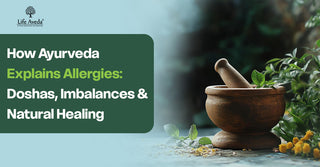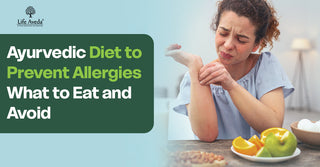Anxiety is one of the topics which our society is afraid to discuss. The reason for this hesitation is its link to mental well-being. But obviously, this stigma is to be set free because anxiety is not just about mental well-being.
Anxiety has control over various systems of the body and has the capability to slowly degrade your health. Long-term anxiety can lead to disturbed digestion, cardiovascular problems like increased heart rate, high blood pressure, changes in heart rhythm along breathing troubles. The release of stress hormones causes disturbance in hormonal levels as well.
Key Takeaways
- Around 4% of the global population has an Anxiety disorder.
- Adolescents (between 13-18 years of age) are Anxiety disorder.
- Females are more affected than men.
- Changes in blood pressure and heart rate can cause anxiety-induced chest pain.
- Basic lifestyle can help to lessen anxiety overtime.
- Meditation is the key to set yourself free from anxiety
What is anxiety chest pain?
Anxiety chest pain is the discomfort or pain in your chest region which is primarily caused by heightened stress levels or anxiety. It is a very common symptom associated with patients of anxiety disorder. This chest pain is not connected with any ailment related to the heart or respiratory system but long-term stress is one of the key causes for heart muscle hypertrophy, high blood pressure and digestive problems.
How Anxiety Causes Chest pain?
Anxiety can cause chest pain through a combination of psychological and physiological factors:
- Muscle Tension: During an anxiety attack muscle tension increases which also includes muscles of the chest region. Thus the person experiences tightness, discomfort or pain in the chest.
- Hyperventilation: Anxiety results in rapid or shallow breathing called hyperventilation. It disturbs the balance of oxygen and carbon dioxide in the bloodstream. It causes chest tightness or chest pain.
- Increased heart rate: The release of stress hormones is triggered by anxiety resulting in fast and forceful pumping of the heart causing palpitations and chest pain.
- Vasoconstriction: Stress hormones triggered due to anxiety cause constriction or narrowing of blood vessels and reduce the blood flow to the chest region thus causing chest discomfort, pain, and tightness.
Anxiety chest pain vs. heart attack chest pain
Anxiety chest pain and heart attack chest pain share similar symptoms but both of them can be distinguished based on the following factors:
|
S.No. |
Characteristics |
Anxiety chest pain |
Heart attack chest pain |
|
|
Pain Characteristic |
Diffuse, Sharp, stabbing, burning sensation |
Crushing, squeezing, pressure like or feeling of heavy weight on chest |
|
|
Location |
Across the chest region |
Often behind breastbone (sternum) and is localized |
|
|
Duration |
Comes & Go, Short |
Persistent, last for more than few minutes and can continue for more than 15 minutes |
|
|
Associated symptoms |
Shortness of breath, rapid heart rate, sweating, Impending Doom (Feeling of something tragic is going to happen) |
Pain radiating to left arm, back, shoulder, jaw & neck, cold sweats, palpitations, shortness of breath, nausea and vomiting |
|
|
Relief |
Subside with relaxation techniques/ distraction or reassurance |
May not relief by rest or relaxation techniques |
How to reduce chest pain caused by anxiety?

Reducing chest pain due to anxiety involves addressing both the anxiety and physical symptoms associated with it. Here are some strategies to be followed on a regular basis:
Deep breathing Exercising:
Practicing pranayama like Anulom vilom (alternate nose breathing exercises) or diaphragmatic breathing or belly breathing helps in reducing the frequency of anxiety attacks. Also, practicing it during anxiety attacks helps in relieving muscle tension and hyperventilation causing chest pain.
Mindful Meditation:
This technique is of more help in reducing the frequency of anxiety. Including meditation in your daily life helps to cultivate control over emotions, thoughts, and bodily sensations.
Physical activity:
Regular physical activity like walking, exercising, swimming, or yoga helps to pump up the endorphins, the happy neurotransmitters in our brain.
Adapting healthy lifestyle:
A healthy lifestyle is avoiding a sedentary lifestyle, alcohol intake, smoking, and heavy-to-digest food. Instead include regular physical activity, eating nutritious food & maintaining good sleep cycles.
333 Rule:
Looking for 3 different objects in the room, listening to 3 different sounds, and moving your 3 body parts can help in an ongoing anxiety attack.
Treatment of Anxiety chest pain
The treatment approach for anxiety and anxiety-induced chest pain is almost the same in modern science and Ayurveda. Modern science recommends CBT, which is cognitive behavior therapy. It helps individuals to identify and also challenge negative thought patterns. Medications like antidepressants, anti-anxiety, and beta blockers are given to the patient. Lifestyle changes & relaxation techniques are also recommended.
Ayurveda is in favor of therapies like CBT but intake of antidepressants, anti-anxiety tablets, and beta blockers are not recommended. Instead, herbs like Gotu kola, brahmi, shankhpushpi, guduchi, mulethi, jatamansi are of great help in managing anxiety and anxiety-induced chest pain. Also, some panchakarma procedures like shiro dhara, and shiro virechana also help. In addition, yoga and meditation are always recommended to patients suffering from anxiety and Anxiety chest pain.
Summary
Anxiety and chest pain can play a very major role in making the situation worse. That’s why a patient with such a problem should be addressed to make them understand the difference between pain associated with heart attack & anxiety. That’s how whenever during an Anxiety attack they can keep their ground intact and will calm down after a while. Taking modern medications for the same is not an option as medication works by inhibiting many neurotransmitters or secretion of hormones or chemicals necessary in the body.




